Best Foods To Eat and Avoid with Kidney Stones
By Dr. Varun Akinapally +2 more

Get,

to manage your symptom
Get your,


4 Cr+ families
benefitted

OTP sent to 9988776655



You’ve successfully subscribed to receive
doctor-approved tips on
Whatsapp

Get ready to feel your best.

Hi There,
Download the PharmEasy App now!!


Register to Avail the Offer
Send OTPBy continuing, you agree with our Privacy Policy and Terms and Conditions

Hi There,
Sign up on PharmEasy now!!
Trusted by 4 crore+ families

OTP sent to 9988776655



You have unlocked 25% off on medicines




Code: NU25
By Dr. Varun Akinapally +2 more
Table of Contents
Kidney stones can be extremely painful and impact your daily life if not addressed in time. These tiny, hard deposits can form anywhere in your urinary system, such as kidneys, ureters, bladder, or even the urethra. When your urine is overloaded with certain minerals or salts, like oxalate, uric acid, or struvite, they can crystallize and clump together, eventually forming stones.
Contact your doctor immediately if you notice any common signs of kidney stones like pain, dark or bloody urine, fever, and nausea. Your doctor will recommend the best measures to take care of your kidney stones, such as medications, surgery (usually minimally invasive), some non-invasive procedures (shockwave lithotripsy, ureteroscopy), and certain dietary changes. As you read on, you’ll find some of the top dietary recommendations that you may get from your doctor.
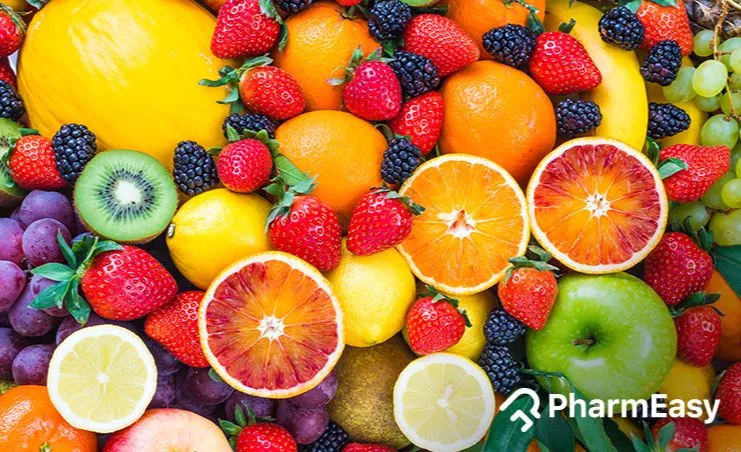
Friendly Reminder: The information shared here is for educational purposes only and the reader should consult a registered medical practitioner before implementing any changes to their health routine.
Studying the stone type can help your doctor understand why you have it and how to reduce the risk of having it in future. Given below are the four types of kidney stones:
Oxalates are produced in the body as well as absorbed from the food we eat. Calcium can bind to oxalate and form calcium-oxalate stones, this is one of the most common types of kidney stones. Certain factors may encourage calcium-oxalate stone formation, such as low intake of water, excessive amounts of oxalate in the body and urine, and high salt levels in your diet[3]. To combat this, you need to:
Uric acid is a waste product that is made when your body breaks down purines. Purines are found in nearly all plants and meats but some foods have higher concentrations. These include red meats[4], organ meats, seafood and alcohol. Purines get broken down into uric acid and this uric acid ends up in the kidneys or other parts of the urinary tract in the process of elimination from the body. When there is too much uric acid in the urine, crystals can form, leading to uric acid kidney stones. Here are some dietary recommendations for people with uric acid stones[2]
Struvite stones are caused due to infection. Good hydration and intake of citrus juices like orange and cranberry juice are said to be helpful for these cases[2].
People with or at risk of cystine stones are advised to increase their fluid intake, mainly through water[2].
When the type of stone is not known, you may consider the following points helpful:
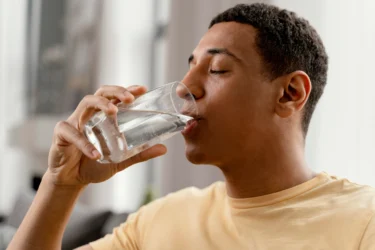
It is very important to stay hydrated when you have kidney stones. Your doctor may recommend a fixed amount of water that you need to drink daily, try to stick to this recommendation[5].
In my experience, I have found that ensuring an adequate intake of fluids, especially water, is crucial in avoiding kidney stones. Drinking enough liquid helps to dilute urine and reduce the concentration of substances that can form stones. By staying well-hydrated, you can promote healthy kidney function and decrease the risk of kidney stone formation.[2]
Dr. Siddharth Gupta, B.A.M.S, M.D (Ayu)
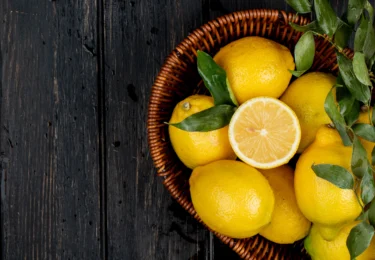
Lemons are a great source of citrate which is believed to make urine less acidic. Uric acid stones can form and grow when urine is acidic hence lemons and limes are great for dissolving these stones if they form. Lemon juice should be diluted with water and can be taken[7].
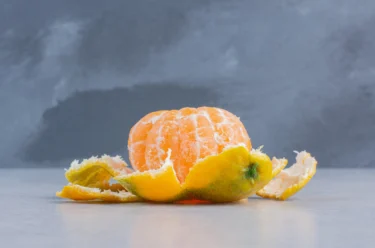
Oranges, like lemons and limes, are citrus fruits with citrate present in them. This has the same benefits as lemon juice and also lowers the acidic level of urine. High acidity in urine is linked with some common types of kidney stones.
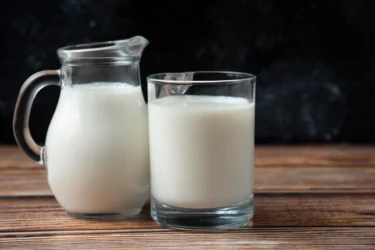
Milk is a great source of dietary calcium. While taking calcium through supplements is linked to higher rates of kidney stones, consuming it from food sources like milk is linked to a lower risk of calcium oxalate stones[11].
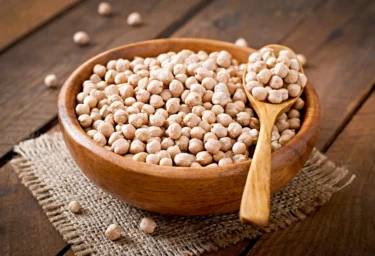
Everyone needs protein to stay healthy and these three vegetarian sources are good for those with kidney stones. Non-vegetarian protein foods can increase your risk of kidney stones, so try to increase your intake of lentils, peas, and beans instead. People with high uric acid levels may need to reduce protein intake.
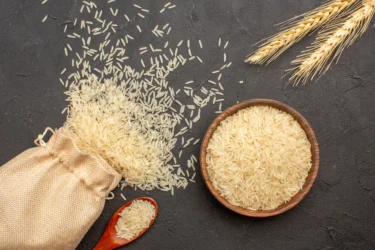
Cooked white rice and oats are also low in oxalates. If you want to lower your risk of developing kidney stones, you can either cut down your oxalate levels or increase your calcium levels to bind the oxalate. Rice and oats can be part of a low-oxalate diet.
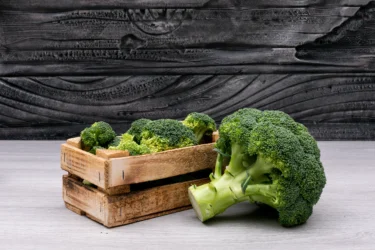
Broccoli contains low levels of oxalates, which is not only good for a lower risk of calcium oxalate stones, but also a great source of potassium. Potassium is important because it binds to calcium which decreases the chance of a stone forming. Potassium may also be involved in dissolving calcium oxalate and calcium phosphate kidney stones[8].
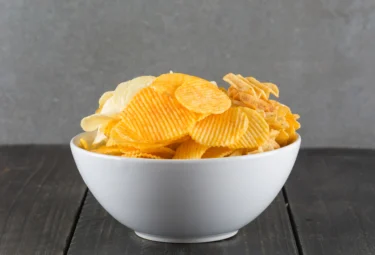
High sodium levels are linked to a higher risk of kidney stones and more calcium being passed through the urine. This increases the risk of stones developing so you should avoid salty foods since these can increase your sodium levels. Processed, prepackaged, fast foods and canned foods are high in salt. Always check the sodium content on the food label before you eat pre-made foods[9].
Based on my experience, I always advise my patients to inquire about the sodium content of the food when dining out. It’s important to be mindful of your sodium intake as excessive sodium consumption can contribute to high blood pressure and other health issues. By asking about the sodium content, you can make more informed choices and opt for lower-sodium options to support your overall health.
Dr. Smita Barode, B.A.M.S, M.S.
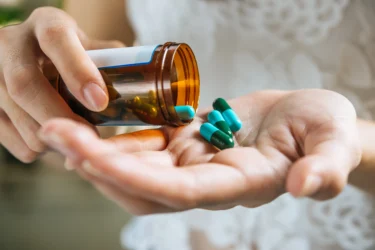
Vitamin C can get converted into oxalate in the body if it is taken in excessive amounts, such as a supplement[12]. Avoid using vitamin C supplements unless prescribed by a doctor and try to get your daily intake of this nutrient from natural sources only.
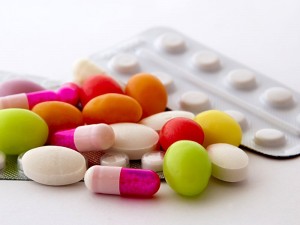
Taking calcium through food sources does not increase the amount of calcium in your urine. However, excessive intake of calcium supplements provides your body with much more calcium than you need. This leads to more calcium being passed out of the body through the urine, which can increase the chances of a stone forming[13]. If you need to maintain your calcium levels, talk to your doctor and find out what dietary options can be opted for instead of calcium supplementation.
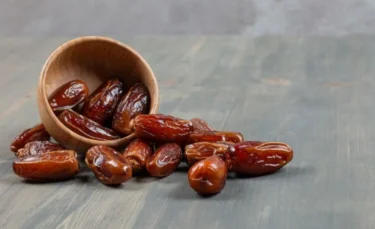
Fruits like rhubarb, dates, and raspberries may worsen your kidney stones since they are high in oxalate content[14]. Try to eat fruits like bananas, apples, and cherries instead
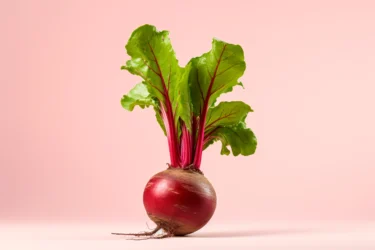
Veggies like spinach, potatoes, beetroots, and carrots are also high in oxalates[14]. Since these are healthy foods, you should not avoid them entirely. Instead, you can eat calcium-rich foods during the same meal to balance out your oxalate levels.
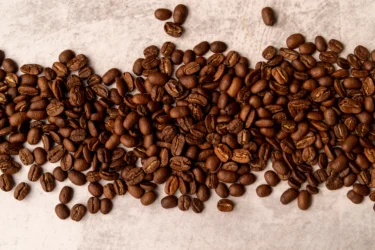
Caffeine can cause your body to pass more urine, which may lead to dehydration. Low levels of water in the body increase the risk of kidney stones. You should speak with your doctor and ask them if you can still drink coffee when you have kidney stones.
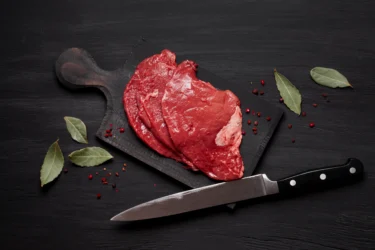
Eating too much protein from animal sources can lead to uric acid building up in your body. Apart from calcium oxalate, uric acid is another substance that can form kidney stones. If you only get your protein from non-vegetarian foods, you may risk a higher chance of uric acid kidney stones. Try to avoid animal-based proteins and use vegetarian sources instead.
Did you know that men are more prone to developing kidney stones compared to women? If you have a family history of kidney stones, your risk of developing them further increases. Additionally, once you’ve had kidney stones in the past, you are more likely to experience them again.
Dr. Rajeev Singh, BAMS
Here are a few recipes to try in case you currently have kidney stones. These recipes include low oxalate ingredients to curb the growth of stones as well as ingredients that may dissolve existing stones. Speak with your doctor before trying out any new diet plan.
Also Read: Natural Home Remedies For Kidney Stone By Dr. Siddharth Gupta
Also Read: 8 Types Of Food That Can Help You Fight Anaemia!
Kidney stones can be managed with timely medical care, so it’s important to consult your doctor as soon as you suspect their presence. If left untreated, these stones can grow larger and cause more complications. A balanced diet can play a significant role in prevention and management. In some cases, surgical removal might be necessary. To tailor your diet and treatment plan, consult your doctor and refer to the list above for foods to include and avoid.
Also Read: Potassium-Rich Fruits to Boost Your Potassium Levels Naturally
No, calcium is an important nutrient and is required for a healthy body. You do not need to avoid calcium-rich foods unless your doctor specifically tells you to do so. In most cases, they will recommend avoiding calcium supplements instead.
Fruits high in citrates, such as lemons and oranges are great for kidney stones.
Milk contains calcium which will bind with the oxalates in your digestive system and lowers the risk of calcium-oxalate forming in the urinary tract. Too much calcium-oxalate in your kidneys and urine can result in kidney stones forming.
Also Read: 13 Immunity-Boosting Foods To Build A Healthy Life
1. National Kidney Foundation. Kidney Stones. Available from: https://www.kidney.org/kidney-topics/kidney-stones
2. National Institute of Diabetes and Digestive and Kidney Diseases. Eating, Diet, & Nutrition for Kidney Stones. Available from: https://www.niddk.nih.gov/health-information/urologic-diseases/kidney-stones/eating-diet-nutrition
3. National Kidney Foundation. Six Easy Ways to Prevent Kidney Stones [Internet]. New York: NKF; [cited 2025 Feb 25]. https://www.kidney.org/kidney-topics/six-easy-ways-to-prevent-kidney-stones
4. National Kidney Foundation. Kidney Stone Diet Plan and Prevention [Internet]. New York: NKF; [cited 2025 Feb 25]. https://www.kidney.org/kidney-topics/kidney-stone-diet-plan-and-prevention.
5. Gul Z, Monga M. Medical and dietary therapy for kidney stone prevention. Korean J Urol. 2014 Dec;55(12):775-9. [cited 2025 Feb 25].https://pmc.ncbi.nlm.nih.gov/articles/PMC4265710/
6. MedlinePlus. Kidney stones – self-care. Accessed 2025 Feb 25. https://medlineplus.gov/ency/patientinstructions/000135.htm.
7. Ruggenenti P, Caruso MR, Cortinovis M, et al. Fresh lemon juice for recurrent calcium oxalate stones: A PROBE trial. EClinicalMedicine. 2021 Dec 14;43:101227. [cited 2025 Feb 25]. https://pmc.ncbi.nlm.nih.gov/articles/PMC8683665/
8. National Kidney Foundation. Broccoli. Accessed February 25, 2025. https://www.kidney.org/kidney-topics/broccoli.
9. Sakhaee K, Harvey JA, Padalino PK, Whitson P, Pak CY. Salt abuse and kidney stone risk. J Urol. 1993 Aug;150(2 Pt 1):310-2. [cited 2025 Feb 25]. https://pubmed.ncbi.nlm.nih.gov/8326549/
10. Eating, Diet, & Nutrition for Kidney Stones https://www.niddk.nih.gov/health-information/urologic-diseases/kidney-stones/eating-diet-nutrition
11. Calcium Oxalate Stones https://www.kidney.org/kidney-topics/calcium-oxalate-stones
12. Effect of vitamin C supplements on urinary oxalate and pH in calcium stone-forming patients https://www.sciencedirect.com/science/article/pii/S0085253815489768
13. Calcium intake and urinary stone disease https://pmc.ncbi.nlm.nih.gov/articles/PMC4708574/
14. Oxalate Content of Foods.xls https://ucikidneystonecenter.com/wp-content/uploads/2020/06/Oxalate-Content-of-Foods.pdf
Disclaimer: The information provided here is for educational/awareness purposes only and is not intended to be a substitute for medical treatment by a healthcare professional and should not be relied upon to diagnose or treat any medical condition. The reader should consult a registered medical practitioner to determine the appropriateness of the information and before consuming any medication. PharmEasy does not provide any guarantee or warranty (express or implied) regarding the accuracy, adequacy, completeness, legality, reliability or usefulness of the information; and disclaims any liability arising thereof.
Comments

Leave your comment...
You may also like
Comments